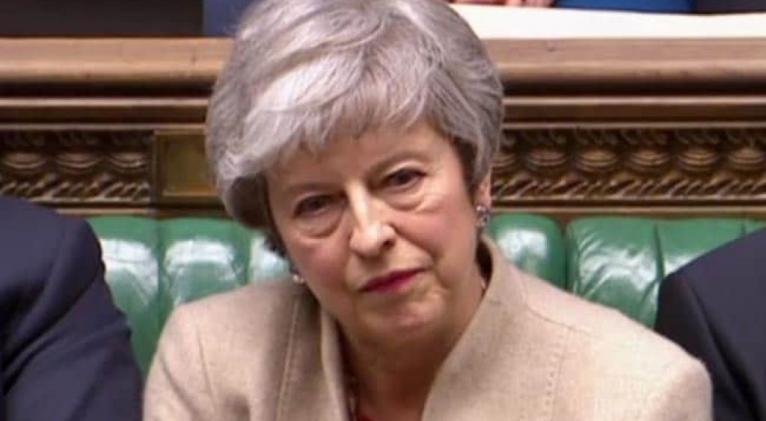Brexit Deal Rejected For Third Time By British Lawmakers
especiales

London, United Kingdom: British MPs on Friday rejected Prime Minister Theresa May's EU divorce deal for a third time, opening the way for a long delay to Brexit -- or a potentially catastophic "no deal" withdrawal in two weeks.
Lawmakers in parliament's lower House of Commons defied May's plea to end the political deadlock that has plunged Britain into crisis, and defeated her withdrawal agreement by 344 votes to 286.
It is yet another blow to a prime minister who has all but lost control of her government and the Brexit process -- particularly after she offered to quit if MPs backed the deal.
Britain had been due to leave the EU on Friday, the long-heralded March 29 "Independence Day", but faced with chaos in Westminster, May asked European leaders last week for a little more time.
She now faces having to return in the coming days to explain what happens next, with speculation in Brussels of an emergency summit on April 10 or 11.
The EU has set a deadline for April 12 for a decision, with two likely options: Britain leaves with no deal at all, or agrees a lengthy extension to allow time for a new approach.
May has said it would be "unacceptable" to ask voters to take part in forthcoming European Parliament elections, three years after they voted in a 2016 referendum to leave the EU.
But while "no deal" remains the default legal option, MPs have repeatedly voted against this, fearing catastrophe if Britain severs ties with its closest trading partner with no plan in place.
DUP holdouts
The failure by parliament to agree the terms of its exit from European Union has left Britain in limbo, with business leaders and trade unions warning of a "national emergency".
Voters are divided, many of them anxious and angry, and May blames MPs -- but they in turn accuse her of refusing to countenance any alternative to her unpopular deal.
"She is, frankly, unable to govern," opposition Labour leader Jeremy Corbyn said, urging her "either to listen and change course or to go".
Tired of waiting, MPs this week gave themselves unprecedented powers to vote on a range of options for Britain's future relationship with the EU.
A prosal for a new customs union got close to passing in a first round on Wednesday, as did a plan for a referendum on May's deal, with more voting planned next Monday and Wednesday.
The risk that MPs decide to agree closer ties to the EU, or even stop it altogether, has focused the minds of some Brexit supporters, who reluctantly agreed to back May's deal.
Her offer on Wednesday to quit if it passes also helped persuade some of her staunchest critics, including former foreign minister Boris Johnson.
But others refused, including May's Northern Irish allies, the Democratic Unionist Party (DUP), which says planned arrangements for the Irish border after Brexit are unacceptable.
"We are not prepared to see our constitutional position altered by Brussels in a fit of pique for daring to leave the EU," said MP Sammy Wilson, the DUP's Brexit spokesman.
Snap election?
May's offer to quit fired the starting gun on an informal race for the leadership of her Conservative party.
Her resignation was dependent on getting the divorce deal passed -- and she might try one last time to get her deal through.
Even so, her days are numbered.
Getting another vote on a deal would be tricky, as parliament speaker John Bercow has already warned he will not let her bring the same deal back again and again.
Under an agreement struck with EU leaders last week, Britain would have left on May 22 if MPs approved the deal this week.
Officials believe there is still a chance that, if she can get it through before April 12, this date is still possible.
However, speculation is also growing that the only way out of the impasse is a snap election.













Add new comment